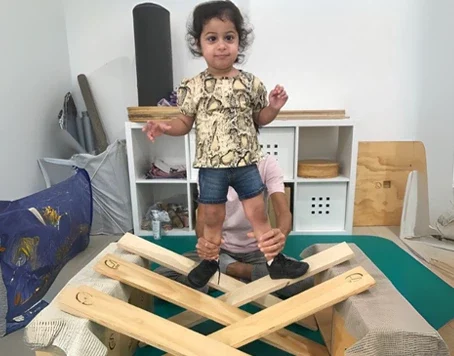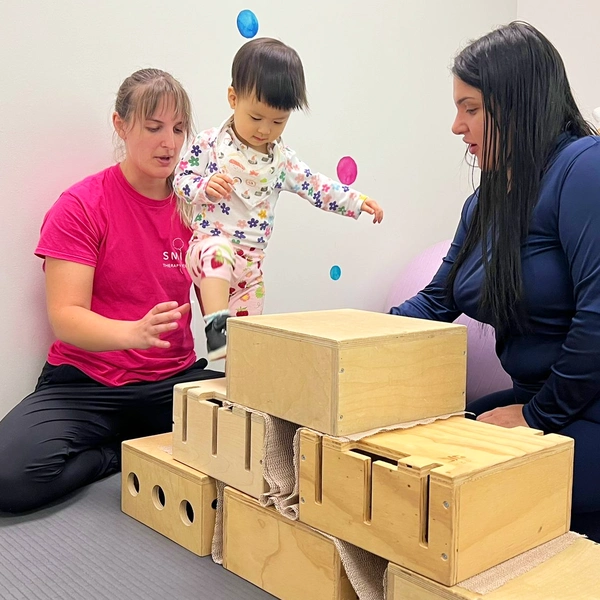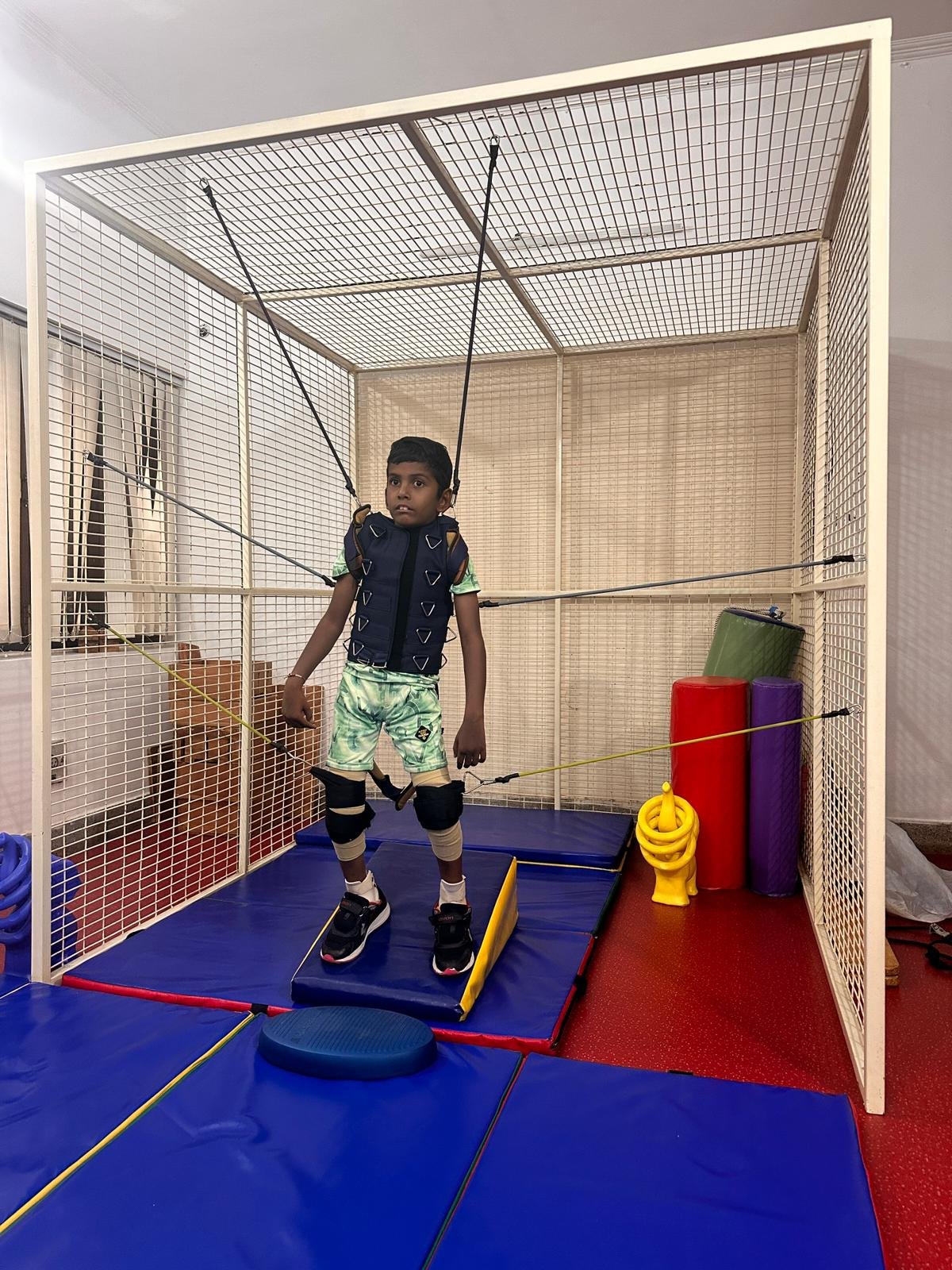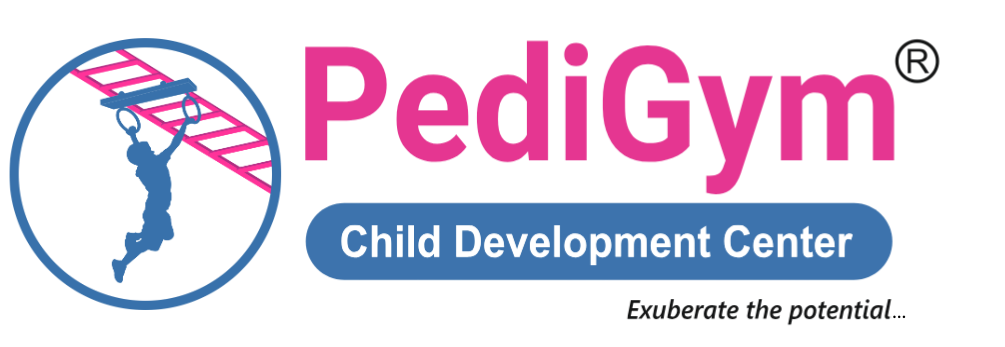Dynamic Movement Intervention (DMI)
Dynamic Movement Intervention helps children improve strength, balance, and coordination through fun, purposeful movement activities.


What is DMI?
Dynamic Movement Intervention Program helps children improve motor skills, balance, coordination, and body awareness. Through guided exercises and fun activities, it supports physical development, confidence, and everyday movement skills in a safe, engaging way.
How DMI Works?
Dynamic Movement Intervention Therapy helps children develop motor skills, balance, and coordination through fun, guided exercises. Each session is designed to be engaging while supporting steady physical growth and confidence.
1. Assessment of Needs
Therapists evaluate each child’s motor skills, balance, coordination, and physical abilities.
2. Personalized Plan
A customized program is created based on the child’s strengths and areas needing support.
3. Structured Activities
Children engage in fun exercises that improve strength, coordination, balance, and body awareness.
4. Regular Monitoring
Progress is tracked continuously, and activities are adjusted to ensure steady improvement.
5. Parent Involvement
Parents are guided on exercises to continue at home, reinforcing skills and confidence.


Why Dynamic Movement Intervention Therapy Matters?
Improves Coordination
Helps kids move with better balance and control.
Enhances Focus & Attention
Boosts concentration through guided movements.
Builds Confidence
Encourages independence and self-belief in kids.
Supports Motor Skills
Helps children achieve key developmental milestones.
Benefits Of DMI Therapy
Dynamic Movement Intervention (DMI) helps children improve movement, posture, and muscle control in individuals with developmental or neurological challenges. It focuses on building stronger motor skills by encouraging active body responses through guided exercises.
Personalised Programs
DMI therapy offers customised exercises based on each child’s unique developmental needs, helping improve strength, balance, and mobility through targeted, goal-oriented sessions.
Intensive Therapy Options
Children needing faster progress can benefit from intensive DMI sessions, which provide frequent, structured movements to boost motor development and support quicker functional improvement.
Functional Skill Support
DMI therapy helps children improve posture, coordination, and body control through guided movements, supporting independence, confidence, and better participation in daily activities.
Frequently Asked Questions
Dynamic Movement Intervention (DMI) is a specialized therapeutic approach designed to improve a child’s motor skills, balance, coordination, posture, and body awareness through structured, purposeful movement activities. Unlike traditional therapy that focuses only on isolated muscles, DMI uses dynamic, guided exercises to stimulate the child’s nervous system, encouraging automatic motor responses and neuroplastic adaptations. Each session begins with a professional assessment, a personalized plan, and engaging activities tailored to the child’s developmental needs — making therapy both effective and enjoyable.
DMI is especially effective for children who experience motor delays, coordination challenges, sensory processing issues, developmental disorders, or difficulty achieving milestone movements such as sitting, crawling, standing, and walking. It can also support children with neurological diagnoses like cerebral palsy, Down syndrome, global developmental delay, and hypotonia. By focusing on comprehensive movement patterns, DMI helps strengthen neuromuscular pathways that contribute to everyday functional tasks.
As an expert-driven therapy, DMI delivers multiple developmental benefits:
- Improved motor coordination and balance through targeted movement patterns.
- Enhanced postural control and alignment for better strength and stability.
- Increased range of motion and functional movement skills.
Boosted confidence and body awareness as children master meaningful movements.
Additionally, it often incorporates playful, engaging activities that make therapy motivating for young participants.
While progression depends on each child’s unique neuromuscular profile and therapy consistency, many families begin noticing improvements in balance, motor control, and confidence within a few weeks of regular DMI sessions. A structured timetable that includes guided therapy plus at-home practice typically accelerates skill gains. Expert clinicians emphasize consistent practice and re-evaluation to ensure developmental momentum continues over time.
Yes — when administered by qualified therapists, DMI is safe and child-centered. Sessions are customized based on the child’s physical abilities, developmental challenges, and comfort level. Therapists closely monitor responses to exercises, ensuring movements are progressive without overstressing the child. Parent involvement is often encouraged to reinforce skills outside of sessions and maintain continuous developmental support.
